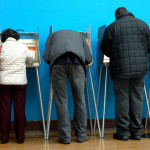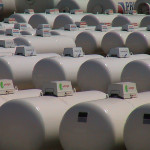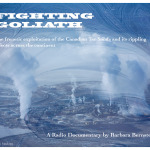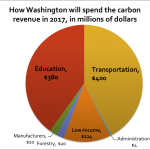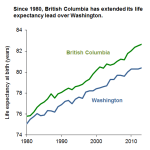Search Results
-
Yes, Seattle’s Elections Should Be Cleaner than Chicago’s
Honest Elections Seattle, I-122, would lower the city’s campaign contribution limits to $500 per donor for all candidates, down from the current limit of $700. For non-mayoral candidates choosing to participate in the Democracy Voucher program, I-122 would lower the contribution limit further, to $250. Opponents argue that Seattle’s campaign contribution limits are low enough already. Here’s one rendition of that claim: Seattle already has one of the lower contribution...Read more » -
Propane Terminal Added to Refinery Proposal in Longview
The latest wave in the tsunami of the Northwest fossil fuel export schemes has washed up in the form of a propane-by-rail facility on the Columbia River. A firm currently calling itself Waterside Energy recently announced plans for a $450 million liquefied petroleum gas (LPG), or propane, export project at the Port of Longview in Washington. The proposal comes on top of a revamped plan by the company to develop...Read more » -
Clark Williams-Derry
Clark Williams-Derry: Biography Clark Williams-Derry, senior fellow, focuses his research and analysis on US and global and energy markets, particularly issues affecting the Western United States. Williams-Derry’s recent research has covered the financial and fiscal implications of “self-bonding” for coal mine reclamation; the financial viability of West Coast coal export projects; Pacific Rim coal market dynamics; greenhouse gas accounting for coal export projects; issues emerging from coal industry bankruptcies; and...Read more » -
HALA and the $100,000 Question
In the last ten months, Zillow says my house in Seattle’s Ballard neighborhood has appreciated by more than $100,000. Seattle has about 150,000 houses like mine. The owners of every one of them have been getting richer daily from the city’s housing affordability crisis. One person’s affordability “state of emergency,” in other words, is another person’s cha-ching. That’s the harsh economic and political reality that made the Seattle Housing Affordability...Read more » -
Weekend Reading 4/10/15
Alan The 12-step method for combating addiction is demonstrably inferior to other treatment strategies, according to this article in Atlantic Monthly. I don’t always like the Economist, but this tirade against sprawl-generating, wealth-concentrating, fossil-fuel-wasting restrictions on urbanism is spot on, from its diagnosis of the causes of the housing affordability crunch to its call for land-value taxation. Keiko Our friends at Common Acre are putting on an event at town...Read more » -
Weekend Reading 2/27/15
Serena After Meaghan’s weekend reading pick a couple of weeks ago, I went on another of my zero-waste reading and inspiration kicks—sort of an annual kick in the pants I need to keep on top of low-waste livin’. First stop: Bea Johnson (h/t L.S.), complete with recipes for everyday needs and a video introduction if you prefer. Why are developers still building sprawl? Atlantic writer Alana Semuels takes a look...Read more » -
Understanding the North American Tar Sands
Last year, Portland’s KBOO Community Radio profiled what is “the largest industrial project on Earth”: the North American tar sands. Typically, one hears of the “Canadian tar sands,” as if the issue is one that lives only north of the US national border and need not concern American citizens. But reporter Barbara Bernstein’s documentary, “Fighting Goliath,” revealed an alarming and very real threat that deserves the same scrutiny as the coal export and oil...Read more » -
Why the Carbon Pollution Accountability Act Is a Big, Awesome Deal
In Washington and across the Northwest, we are already seeing devastating impacts of climate change. In Hood Canal and Puget Sound, shellfish are being destroyed by an acidifying ocean, declining snowpack threatens water supply on both sides of the Cascades, and record-setting wildfires have ravaged Eastern Washington communities. The good news is that we can do something about it. We at Sightline are always saying that a well-designed program can...Read more » -
Living Longer in British Columbia
Life expectancy reached a new high in both British Columbia and in Washington last year. That’s good news, since it means that the residents of both jurisdictions are living longer, healthier lives. In one way of looking at things, the news comes as no surprise. Lifespans through much of the industrialized world have increased fairly steadily since the end of World War II, so record-breaking years are now more the rule than the...Read more » -
Weekend Reading 9/26/14
Alan My favorite wrap-up of this week’s UN Climate Summit. We put this in the Daily—about how Cascadia could become a climate refuge, attracting immigrants from harder hit locales—but have you considered this? The region’s cities all have comprehensive plans that assume certain amounts of population growth then indicate where they expect those people to live. The projections may all be way too low, and unless cities plan to accommodate...Read more »

